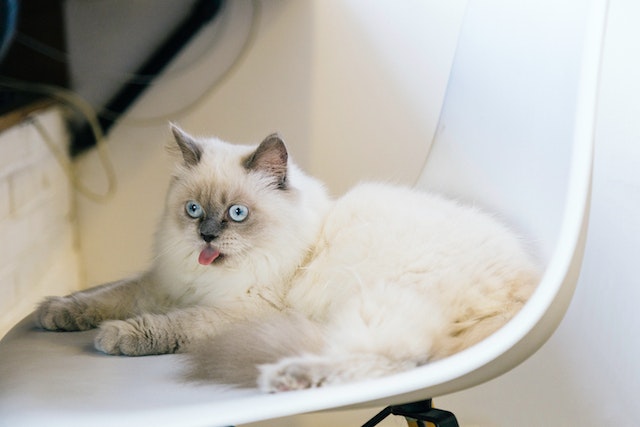As responsible pet owners, it’s our duty to ensure the health and well-being of our feline companions. While a balanced diet is crucial, sometimes our cats require an extra boost in the form of supplements.
These supplements can provide additional nutrients, vitamins, and minerals that may be lacking in their regular diet. Recognizing the signs that your cat may need supplements is essential in maintaining their optimal health. In this article, we will explore the benefits of a natural supplement for your cat, signs that indicate your cat may need them, various types of supplements available, and the importance of consulting with a veterinarian.
Benefits of Supplements for Cats
Supplements play a significant role in supporting your cat’s overall health and addressing specific nutritional needs. Here are a few key benefits they offer:
Filling Nutritional Gaps
Even with a well-balanced diet, it can be challenging to meet all of your cat’s nutritional requirements. Supplements can help fill those gaps and provide additional essential vitamins, minerals, and amino acids.
Promoting Joint Health
Cats, especially as they age, may experience joint issues such as arthritis. Joint supplements containing glucosamine, chondroitin, and omega-3 fatty acids can help alleviate discomfort and improve mobility.
Enhancing Skin and Coat Health
Certain supplements, such as omega-3 and omega-6 fatty acids, can contribute to a healthier and shinier coat. They also help reduce itchiness, flakiness, and excessive shedding.
Supporting Immune System
A strong immune system is crucial in keeping your cat protected against various infections and diseases. Supplements that contain antioxidants, probiotics, and vitamins can aid in boosting their immune response.
Signs Your Cat Needs Supplements
While a balanced diet should be the foundation of your cat’s nutrition, several signs may indicate the need for supplements.
- Dull Coat and Skin Issues
- Joint Stiffness and Mobility Problems
- Digestive Issues
- Poor Appetite or Picky Eating
We’ll talk more about conditions and the reasoning below in the following sections.
Types of Supplements
There is a wide range of supplements available for cats. The most commonly used ones include:
Multivitamins
These supplements provide a comprehensive blend of essential vitamins and minerals to support overall health.
Omega Fatty Acids
Omega-3 and omega-6 supplements help promote healthy skin, a glossy coat, and alleviate inflammation.
Joint Supplements
These supplements contain ingredients like glucosamine and chondroitin to support joint health and mobility.
Probiotics
Probiotic supplements contain beneficial bacteria that support a healthy gut and aid digestion.
Conditions That May Require Cats to Take Supplements
There are several common feline health conditions where supplements may be beneficial in supporting their treatment and overall well-being. It’s important to note that supplements should always be used in conjunction with veterinary guidance and prescribed treatments.
Here are some feline health conditions where supplements may play a supportive role:
Arthritis and Joint Issues
Cats, particularly older ones, can develop arthritis and experience joint stiffness and pain. Joint supplements containing ingredients like glucosamine, chondroitin, and omega-3 fatty acids can help alleviate discomfort and improve mobility.
Skin and Coat Problems
Cats with dry, flaky skin, excessive shedding, or dull coats may benefit from supplements rich in omega-3 and omega-6 fatty acids. These supplements can help improve the health and appearance of the skin and coat.
Allergies
Cats can develop allergies to certain foods or environmental factors, resulting in skin irritations, itching, and gastrointestinal issues. Supplements containing omega-3 fatty acids and antioxidants can help reduce inflammation and support the immune system’s response to allergies.
Digestive Disorders
Cats with digestive issues such as chronic diarrhea, constipation, or sensitive stomachs may benefit from probiotic supplements. Probiotics help promote healthy gut flora and improve digestion.
Urinary Tract Health
Urinary tract issues, such as feline lower urinary tract disease (FLUTD) or urinary crystals, can be common in cats. Supplements that promote urinary tract health, such as those containing cranberry extract or omega-3 fatty acids, may be recommended by veterinarians to help prevent or manage these conditions.
Immune System Support
Cats with weakened immune systems or those recovering from illness may benefit from immune-supportive supplements. These supplements often contain antioxidants, vitamins (such as vitamin C and E), and probiotics to boost the immune response.
Cognitive Function
Aging cats can sometimes experience cognitive decline, leading to behavior changes and confusion. Certain supplements, like antioxidants and omega-3 fatty acids, may support brain health and cognitive function in senior cats.
Remember to always consult with your veterinarian before introducing any supplements to your cat’s routine.
Conclusion
Supplements can be a valuable addition to your cat’s diet when used correctly and under the guidance of a veterinarian. They can address nutritional deficiencies, promote joint health, enhance coat and skin condition, and support a robust immune system. However, it’s crucial to consult with your vet before introducing any supplements to your cat’s routine. Remember, each cat is unique, and their specific needs may vary. By recognizing the signs and consulting a professional, you can find solutions.

